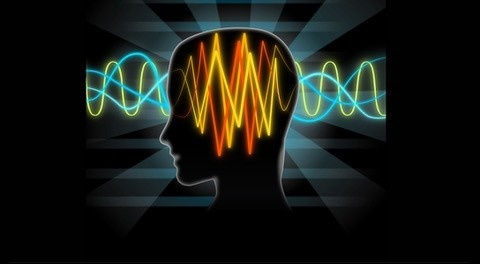Can Music Really Rewire the Brain? – Science Says Yes and Here’s How
- Brainz Magazine

- Aug 11, 2025
- 3 min read
Updated: Aug 12, 2025
Kathleen Haden, BS, PT, MBA, is a visionary leader in wellness, sound therapy, and aquatic healing. As CEO of Good Vibrations Music Co., she co-created one of the world’s largest Frequency Infused Music™ libraries, used globally to promote mind-body balance through sound and water.

Modern neuroscience meets ancient wisdom in the emerging field of neuromusicology. Explore how rhythm and frequency can reshape the mind, boost healing, and offer new hope for conditions like Alzheimer’s, anxiety, and chronic pain.

We’ve all experienced it: a long, frustrating day fades away the moment we get into the car, press play on our favorite song, and suddenly everything shifts. Our stress begins to dissolve, our mood lifts, and we find ourselves singing along. By the time we arrive home, we feel lighter and more at ease. Music fuels our soul, changes our state of mind, and transforms our entire being. But what’s really happening inside the brain when we experience this emotional reset?
Welcome to neuromusicology, the scientific study of how music affects the brain and nervous system.
Music and brain development
Research has shown that music education at an early age can stimulate cognitive development, enhancing both visual and verbal skills. Children who receive music training often show better communication skills, higher emotional engagement, and increased empathy. Music, it turns out, acts like a workout for the brain, promoting better memory, sharper mental function, and enhanced learning.
Music as medicine
Music doesn’t just affect children; it’s powerful medicine for adults, too. Listening to music has been shown to reduce stress hormones, boost immune function, and ease pain. It can even improve sleep quality by lowering anxiety and calming the nervous system before bedtime.
Music’s impact is far-reaching. It can improve motor skills, emotional regulation, and cognitive function. In fact, studies have shown that music stimulates neurogenesis, the brain’s ability to produce new neurons. For people suffering from neurodegenerative diseases such as Alzheimer’s and Parkinson’s, music has shown remarkable effects.
“Usually, in the late stages, Alzheimer’s patients are unresponsive,” explains Dr. Suzanne Jonas, a leading expert in sound therapy. “But once you put on headphones playing their favorite music, their eyes light up. They start moving and even singing. The effect lasts several minutes, even after the music stops.”
What the brain hears and sees
MRI scans reveal that music activates multiple areas of the brain, including emotion, memory, movement, and even reward pathways. What’s fascinating is that the brain responds most positively to music you personally enjoy. Whether it’s jazz, classical, or hip-hop, your brain “lights up” based on your unique preferences.
The rise of neuromusicology
Neuromusicology is a fast-growing field that bridges modern brain science with ancient cultural understanding. Many indigenous and early civilizations believed in the healing power of music, and now, thanks to modern imaging and neurotechnology, we’re beginning to understand why.
This research has given rise to new therapeutic approaches, including music therapy and sound-based interventions for behavior, speech, cognitive function, and emotional regulation.
Neuromusicology explores how sound frequencies affect the brain's complex systems, opening new possibilities for treating conditions like autism, PTSD, anxiety, memory loss, and chronic pain.
The future: Frequency infused music®
At the forefront of this movement is a breakthrough modality called Frequency Infused Music®, custom-composed music layered with specific healing frequencies to target physical and emotional imbalances. Researchers are beginning to find that these “frequency recipes” can support stress relief, better sleep, pain management, emotional balance, and more.
Imagine a future where your favorite music is also your medicine, designed not just to entertain but to heal. These soundscapes could play throughout hospitals, clinics, spas, schools, workplaces, and even airplanes, quietly restoring balance to our overstimulated bodies and minds.
Read more from Kathleen Haden
Kathleen Haden, Visionary Leader | Integrative Wellness Expert | CEO
Kathleen Haden, BS, PT, MBA, is a leader in sound therapy, aquatic healing, and integrative wellness with over 25 years of experience in the health and movement sciences. As CEO of Good Vibrations Music Co., she co-created Frequency Infused Music™, used worldwide to support relaxation, recovery, and emotional balance. Her work blends clinical expertise with vibrational healing to help others restore mind-body harmony. A passionate educator and speaker, Kathleen regularly shares insights on the power of sound, water, and movement to transform well-being.









